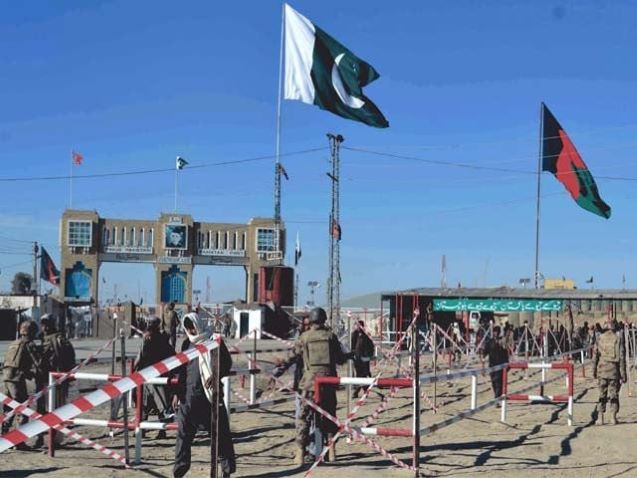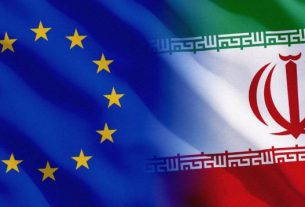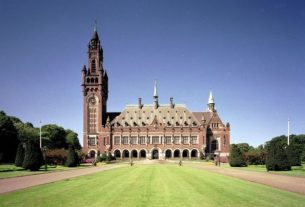ISLAMABAD — Pakistan is pressing Afghanistan’s ruling Taliban government to hand over a suspected killer of a Pakistani security guard before it reopens a busy southwestern border crossing between the two countries.
Pakistani authorities blocked all movement across the Chaman terminal in Baluchistan province on Sunday, immediately after a suspected Taliban security guard crossed over to the Pakistani side and opened fire on border forces there. The shooting killed a member of the paramilitary Frontier Corps and injured two others.
The deadly incident triggered clashes between border security forces of the two countries with reported casualties, but neither side has formally commented on the reported losses.
A senior Chaman administration official told VOA by phone that the border crossing was briefly opened late Monday afternoon to allow stranded Afghan and Pakistani pedestrians to return to their native countries, but no trade convoys were permitted to move in either direction.
“The border terminal has now been indefinitely closed for trade and all other movements. It will not be opened until the handing over of the assailant responsible for the martyrdom of the Pakistani soldier,” Deputy Commissioner Abdul Hameed Zehri told VOA.
Security camera footage circulating on social media shows the assailant among a group of several Taliban guards before he quickly brings out his weapon and shoots at Pakistani forces near an entry gate. A Pakistani security official confirmed the authenticity of the video to VOA.
Zehri said Pakistan’s attempts to seek a negotiated settlement to the issue failed to produce an outcome, but there were no clashes on Monday.
The motives of the shooting were not immediately known, nor have the Taliban offered any formal comment on the incident.
There were conflicting reports about the fate of the attacker. Some Taliban sources said they were searching for the man, while others said he was recently inducted into the border security unit and had already been apprehended.
The sources, however, ruled out the possibility of handing the suspect over to Pakistan, saying action against him will be taken strictly in line with Afghan laws.
The Chaman and the northwestern Torkham border crossings serve as the main trade routes for landlocked Afghanistan for bilateral and transit trade with and through Pakistan. There are several other relatively smaller terminals on the nearly 2,600-kilometer border separating the two countries.
Residents and traders said Monday scores of trucks transporting Afghan transit trade goods and bilateral shipments were stranded on both sides of the border after Pakistan closed the Chaman crossing.
The Taliban took over Afghanistan 15 months ago and have relied mostly on Pakistan to generate much-needed revenues for their cash-strapped new government through increased bilateral and transit trade.
Islamabad has in recent months removed tariffs and introduced visa concessions for Afghan traders. It has also dramatically increased Afghan coal imports, tilting the annual trade balance in favor of Kabul for the first time in the history of bilateral trade.
No country has yet recognized the Islamist Taliban due to human rights issues, particularly their treatment of women.
The absence of legitimacy and international economic sanctions ensuing the Taliban takeover have pushed the Afghan economy to the brink of collapse.
The Islamist rulers have placed restrictions on women, effectively limiting their access to public life and education. They have also ignored global calls for allowing teenage girls to resume their secondary-school education beyond grade six.
The hard-line group returned to power in August 2021 when the United States and NATO troops withdrew from Afghanistan after nearly 20 years of war with the then-insurgent Taliban.
The group has dismissed criticism of its policies as well as calls for reversing restrictions on women, saying it is governing the country in line with Afghan cultural and Islamic law.
On Wednesday, Russia will host a meeting of special Afghan envoys from China, India, Pakistan, Kazakhstan, Iran, Kyrgyzstan, Tajikistan, Turkmenistan and Uzbekistan to discuss the situation in Afghanistan.
The Taliban’s treatment of women and other human rights concerns are expected to figure high in the multilateral talks. Russian officials say they have not invited Taliban representatives to the meeting, even though they took part in the last session of the so-called Moscow format gathering held in October 2021.__VOANews





